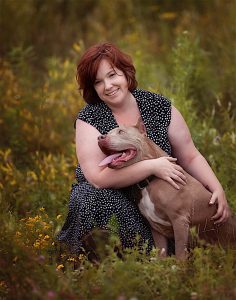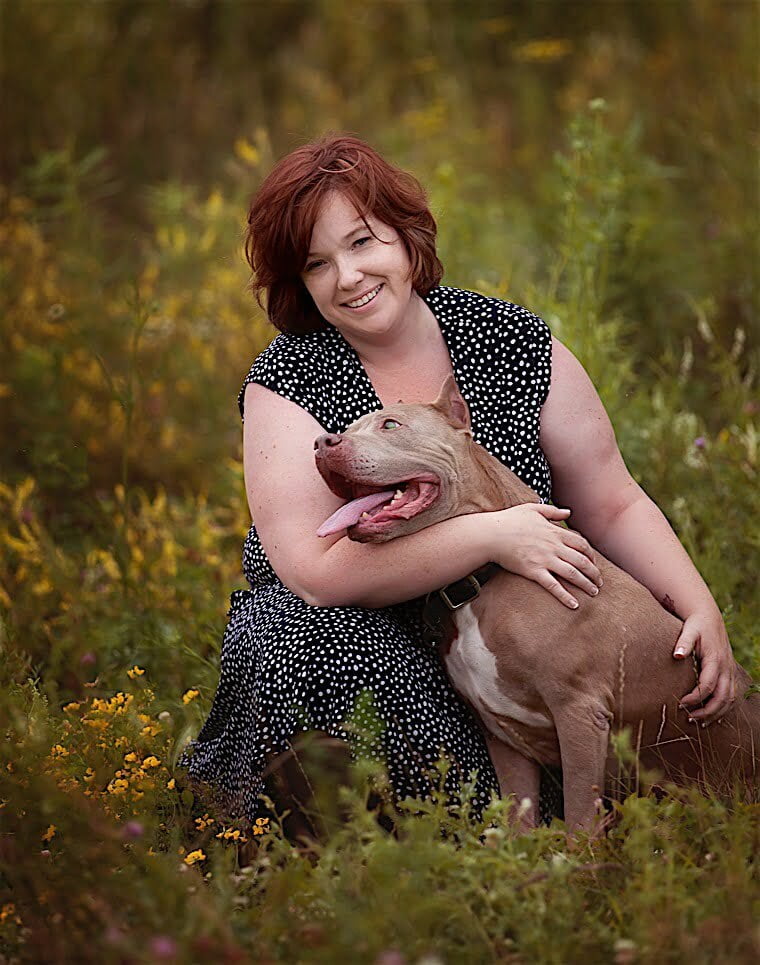In most cases, it's not hard to figure out the cause and the solution of behavioral issues in dogs.
by Jennifer Hendricks
As a trainer with a strong focus in behavioral work, I help people keep dogs in their homes and assist those who adopt dogs to transition them into their homes. If you have recently adopted a senior dog or your lifelong friend is getting up there in years, behavioral issues of varying types may pop up, seemingly out of nowhere. If caught early, most issues can be completely corrected with only a few sessions with a professional trainer or behaviorist.
Separation Anxiety
This is a very common issue in dogs of all ages. Symptoms can range from relatively mild–salivating, panting, general restlessness–to much more severe, including destructive behaviors, urination, defecation and attempts to escape. There are a few exercises and routines you can set in to place with your pet to prevent separation anxiety and combat mild symptoms.
* Many people view the crate as just plain mean or as a type of punishment. That couldn't be further from the truth. When introduced correctly, the crate can become your dog's safe haven, a place of security. In the case of dogs with separation anxiety, crates can have a calming effect and prevent pets from injuring themselves.
* When leaving your dog, keep goodbyes calm and emotionally neutral. If you dread leaving your pets or feel sorry that they will be alone for a few hours, they will pick up on your emotions and this can cause unnecessary anxiety. Change up your “leaving routine.” If you go through the exact same steps every time you leave the house (setting your keys and jacket by the door, putting your shoes on, turning out the lights, etc.) this can become a source of anxiety. Rearranging the steps can help keep your pet guessing.
* When you arrive home, resist the urge to charge in and exuberantly greet your dog. Again, keep your emotions neutral and greet your pet calmly.
* If symptoms of anxiety are more severe, you should contact a professional trainer or behaviorist to help you set up a more in-depth training plan to correct the issues.
House Training
House training issues that pop up out of the blue can be caused by a variety of things, including drastic changes in a dog's routine or environment. Some factors that can lead to “accidents” in the house are:
* Moving to a new home
* An addition to the family or a member moving out
* A change in your daily schedule
It's advisable to first visit your veterinarian to rule out possible health causes of house training issues.
Aggressive Behavior
Aggressive or phobic behaviors are perhaps the most disconcerting to deal with in your beloved family pet. These behaviors can be caused by anything from a bad experience with another dog or person, neglect or a general lack of confidence. There are also a plethora of underlying diseases that can lead to aggressive behavior issues in your dog (diabetes, thyroid issues, cognitive issues, sensory issues, side effects of certain medications, etc.). When we aren't feeling well, we're able to communicate that to those around us. Dogs communicate with a growl, a nip or other signs of aggression. Again, a visit to your veterinarian is always a good idea. If health issues are ruled out, contact a professional trainer or behaviorist who specifically deals with aggressive or phobic behavior modification.

issues can be resolved with the help of a
trainer or behaviorist.
Perhaps the most important thing to keep in mind is that the sooner a behavioral issue is addressed, the higher the success rate in eliminating that issue and the sooner you can get back to enjoying your time with your four-legged best friend!
Jennifer Hendricks established Hendricks Dog Training in 2005 and offers private in-home training and behavior modification throughout Northwest Indiana and the Chicagoland area. She's been training dogs of all breeds for more than 20 years and is a graduate of the National K9 School for Dog Training, based in Columbus, Ohio.




